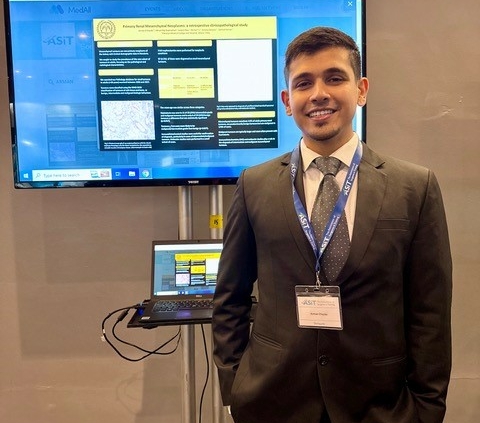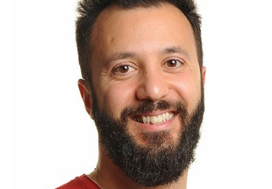Posts
Podcast: Radiological features characterising indeterminate testes masses: a systematic review and meta-analysis
Part of the BJUI/BURST podcast series
Dr Eunice Ter Zuling is a Urology registrar based in Buckinghamshire Healthcare NHS Trust.
Twitter: @EuniceZuling
In this podcast she discusses the BJUI paper: Radiological features characterising indeterminate testes masses: a systematic review and meta-analysis
Eunice is part of BURST urology. British Urology Researchers in Surgical Training (BURST) is a research collaborative primarily of urological researchers in the UK. Their aim is to produce high impact multi-centre audit and research which can improve patient care.
Podcast: NICE Guidance. Pelvic floor dysfunction: prevention and non-surgical management
Part of the BURST/BJUI podcast series
British Urology Researchers in Surgical Training (BURST) is a research collaborative primarily of urological researchers in the UK. Their aim is to produce high impact multi-centre audit and research which can improve patient care.
Podcast: NICE Guidance. Urinary tract infection in under 16s: diagnosis and management
Part of the BURST/BJUI podcast series
British Urology Researchers in Surgical Training (BURST) is a research collaborative primarily of urological researchers in the UK. Their aim is to produce high impact multi-centre audit and research which can improve patient care.
Podcast: NICE Guidance on urinary incontinence in neurological disease
Part of the BURST/BJUI podcast series
Eunice Ter Zuling is a core surgical trainee in South Yorkshire, UK and BURST member. Here she discusses the NICE guidance on urinary incontinence in neurological disease, published in 2021 (https://www.nice.org.uk/guidance/cg148). To contribute a podcast please go to bursturology.com/opportunities.
British Urology Researchers in Surgical Training (BURST) is a research collaborative primarily of urological researchers in the UK. Their aim is to produce high impact multi-centre audit and research which can improve patient care.
Podcast: The IDENTIFY Study
Part of the BURST/BJUI podcast series
Podcast: The IDENTIFY Study: The investigation and detection of urological neoplasia in patients referred with suspected urinary tract cancer; a multicentre observational study
Mr Sinan Khadhouri is a Specialty Registrar in Urology in the East of Scotland and currently doing his PhD at the University of Aberdeen. He is also the co-vice chair of BURST and the lead trainee on IDENTIFY.
Podcast: Survival following cytoreductive nephrectomy: a comparison of existing prognostic models
Part of the BURST/BJUI Podcast Series
Mr Kenneth MacKenzie MBChB, FRCS (Urol) is a ST7 in Urology in North East England and BURST committee member.
Podcast: Prostate Health Index and mpMRI to predict PCa grade reclassification in AS
Part of the BURST/BJUI Podcast Series
Mr Joseph Norris is a Specialty Registrar in Urology in the London Deanery. He is currently undertaking an MRC Doctoral Fellowship at UCL, under the supervision of Professor Mark Emberton. His research interest is prostate cancer that is inconspicuous on mpMRI.
Podcast: Machine learning partial nephrectomy complications
Part of the BURST/BJUI Podcast Series
Arjun Nathan is an ST1 in Urology in North London and NIHR Academic Clinical Fellow with the Royal College of Surgeons. He is also the BURST Treasurer and committee member.
Residents’ podcast: MIMIC Study
Part of the BURST/BJUI Podcast Series
Mr Chuanyu Gao is a Core Surgical Trainee in KSS Deanery. He graduated from UCL Medical School and obtained his iBSc in Surgical Sciences before completing his Academic Foundation Years in East of England Foundation School. Chuanyu first became involved with BURST on the MIMIC Study as an international site coordinator and has been part of the BURST committee ever since.
Factors associated with spontaneous stone passage in a contemporary cohort of patients presenting with acute ureteric colic: results from the Multi‐centre cohort study evaluating the role of Inflammatory Markers In patients presenting with acute ureteric Colic (MIMIC) study










